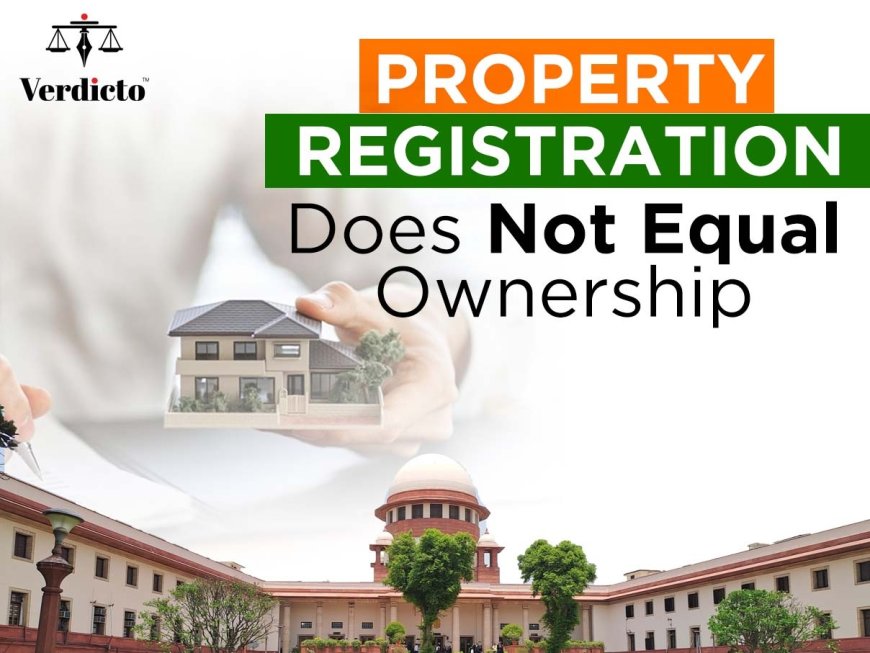Property Registration Does Not Equal Ownership, SC Clarifies
In K. Gopi vs Sub-Registrar & Ors, the Supreme Court rules that mere registration of property documents doesn't confer legal ownership, redefining how ownership is determined in property transactions across India.

In a landmark ruling that could reshape property law interpretation across India, the Supreme Court in K. Gopi vs Sub-Registrar and Others (2025) has clarified that registering a property does not automatically grant ownership. This judgment impacts buyers, developers, lawyers, and millions of citizens engaged in land transactions.
Key Takeaways from the Ruling:
Registration ≠ Ownership:
The Supreme Court stated that registration is a procedural requirement, not a conclusive proof of ownership. Ownership must be proven through title documents and lawful acquisition.
Role of Sub-Registrar Is Limited:
The court held that a sub-registrar’s function is purely administrative, with no authority to judge whether the person registering the document has legal title to the property. Their job is to check procedural compliance, not verify ownership.
Only Existing Rights Transferred:
If someone without ownership rights registers a sale deed, only the rights they lawfully hold—if any—are transferred, even if the document is registered.
Tamil Nadu Registration Rule Struck Down:
Rule 55A(i) of the Tamil Nadu Registration Rules, which allowed sub-registrars to refuse registration if the vendor didn't produce original title deeds or revenue records, was declared ultra vires (beyond legal power). The court directed the sale deed in K. Gopi to be registered.
Who Should Be Alert?
Buyers: Ensure the seller has a clean title. Get legal due diligence done.
Sellers: Understand that executing and registering a deed doesn’t validate ownership if you don’t hold the title.
Land Developers: Must now tread carefully, especially while acquiring land without full title checks.
Why It Matters:
This ruling marks a paradigm shift in how property law is practiced in India. It:
- Enhances transparency
- Reduces bureaucratic hurdles
- Brings clarity to roles of authorities
- Empowers citizens with limited documentation
The law affects you more than you think. At Verdicto, we make sure you understand how. Follow us — where law meets journalism. Support our work so we can keep bringing you clear, impactful, and well-researched reports like this one.







